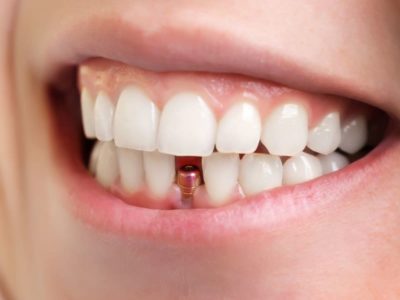A dental implant is a metal post that’s surgically attached to the jawbone. It works by supporting an artificial replacement tooth. Once the implant is successfully attached, the restorative dentist or oral surgeon will mount the artificial replacement tooth to the dental implant.
Dental implants have an impressively high success rate. However, there are also very rare instances when some patients experience dental implant failure. The failure can be attributed to various reasons. Unfortunately, not many are aware of the possible reasons including even the basics of the dental implant procedure.
For those who are candidates for dental implant procedure, it is ideal that you find out all there is to know about the procedure. It is also recommended that you go beyond the basics like what the procedure is like, who the ideal candidates are, or how much the dental implant costs.
For starters, it would also be a great idea to find out beyond the dental implant basics like the dental implant cost. It would also help if you know about all the possible complications of the dental implant procedure so you can weigh the pros and cons and you know what you are getting yourself into.
Dental Implant: Possible Complications
Complications or problems that arise from the dental implant procedure can occur a few months after the procedure or a few years later. In most cases, early dental implant failure occurs during the first three to four months after the dental implant surgery.
It is important to remember that you are likely to experience some level of pain or discomfort after the surgery. The good thing is most can be easily managed with over-the-counter pain medications.
In addition, it is also important that you check with your dentist if the pain continues after a week. Typically, it will take between three to six months for your dental implants to completely heal.
Also, while pain and swelling are quite common, there are still possible complications that you need to look out for. Some of the possible complications that can develop include:
Implant site infection
It is possible for infection to develop after or even during the procedure. Implant site infection risk factors can include bad oral hygiene, autoimmune conditions, and smoking.
Implant micro-movements
When the dental implant is not sturdy, micro movements of the implant can occur. Typically, the artificial implant is not attached to the dental implant if the implant has not successfully integrated with the jawbone yet.
However, it is possible for a surgeon to carry out immediate tooth replacement immediately after the implantation. Understandably, this method will involve fewer dental visits. However, this might put extra stress on the dental implant and can lead to implant failure.
Allergic reaction
For those patients who are allergic to titanium alloy, it is possible for them to develop an allergic reaction. Symptoms of possible allergy can include tingling sensation, swelling, and loss of taste. Make sure you inform your dentist if you have any allergic reactions to titanium alloy so they can take the matter into account.
Insufficient bone support
Dental implant complication can also occur when the dental implant is not supported properly by the bone. Without adequate bone, the dental implant won’t be able to fuse with the jawbone successfully and create a robust post for the artificial tooth.
Not following the dentist’s instructions
Not everyone may be aware of it but certain activities and habits can have a huge impact on the success of your dental implant procedure. That said, it is recommended that you follow all the instructions provided by the dentist.
Case in point: if you are instructed to only consume soft foods until the dental implant has fused successfully with the bone and has completely healed. It is also likely that you will be asked to avoid eating anything hard and to observe good oral hygiene.











Comments